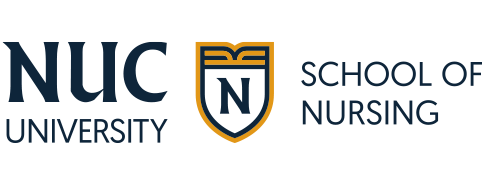You don’t need to spend a lot of time in nursing to know that this field is rapidly changing and in a constant state of innovation. And when it comes to innovations in any industry, the best inventions and advancements often come from within. This makes perfect sense when you think about it as nurses possess valuable knowledge of how the healthcare system works and what improvements would make the most difference.
In many ways, nursing graduates can be among the biggest drivers of change and innovation in the healthcare industry. By understanding the role ASN graduates have in shaping healthcare and the influence of global health trends on nursing practice, you can better prepare to make a meaningful impact in the nursing field and beyond
Exploring the Role of ASN Graduates in Shaping the Future of Healthcare
When it comes to healthcare evolution and nursing, there are many ways in which ASN graduates are already shaping the future of the field. Let’s explore those ways below:
1. Embracing Technological Advancements in Patient Care
Recent advancements in patient care, ranging from telemedicine to wearable devices and remote patient monitoring, are being spearheaded by nurses across the nation. By embracing change rather than being hesitant to adopt new technologies, today’s ASN graduates are making huge strides in the quality of patient care and overall patient outcomes.
2. Leading Efforts in Community Health Initiatives
ASN professionals are also on the front lines of many community health initiatives designed to help improve the health and wellness of local populations. For example, these nurses are leading mental health workshops, assisting in public health immunization clinics, and providing educational support to members of the community who may not otherwise have access.
3. Innovating Nursing Education for Future Readiness
In recent years, there have also been some incredible innovations in nursing education that ASN students and new RNs are using to their advantage to prepare them for hands-on clinical work in the field. This includes the use of AI in training and education, as well as virtual and augmented reality technology to help simulate any number of clinical care scenarios.
4. Enhancing Patient Safety Through Evidence-Based Practices
The latest generations of ASN graduates are also making significant changes in patient safety through the use of evidence-based practices. By identifying and implementing interventions before safety issues arise, nursing professionals can reduce the risk of accidents and other safety issues to patients. Meanwhile, these nurses can use evidence-based practice to provide patients with the education they need to protect themselves.
5. Addressing the Mental Health Crisis With Compassionate Care
Mental health issues are an ongoing concern among many, especially when you consider that an estimated 59.3 million adults in the United States suffer from some form of mental illness. Fortunately, nursing students are receiving more education and training on mental health than ever before. This is empowering ASN graduates to do their part in addressing the nation’s ongoing mental health crisis with the compassionate care that these patients need and deserve.
6. Pioneering Telehealth Services to Expand Access
When COVID-19 hit the United States in 2020, many healthcare providers were forced to begin offering telehealth services in an effort to cut back on direct human interaction. Since then, the use of telemedicine has continued to grow as more patients have enjoyed the benefits of receiving care remotely. In many cases, front-line nurses (such as RNs) were the ones pioneering this technology in its infancy, and they continue to be the ones who provide the majority of telehealth services today.
7. Integrating Genomics Into Personalized Medicine Approaches
In recent years, many doctor and nurse teams have also begun using genomics as a means of providing a more tailored approach to care. Genomics refers to a personalized medicine practice that actually uses a patient’s genetic information to customize their care and treatments. By using genomics, nurses and other healthcare providers can help patients reduce their risk of developing certain health conditions while creating better treatment plans for those with a diagnosis.
8. Championing for Policy Changes to Improve Health Equity
Nurses play a critical role in addressing social determinants of health (SDOH) to improve health outcomes and reduce disparities, particularly for economically and socially disadvantaged populations. Rooted in a commitment to social justice, nurses engage in upstream advocacy, focusing on the policies and conditions shaping well-being. Effective nurse advocacy involves multisectoral partnerships and a “Health in All Policies” approach to address systemic inequities. By influencing evidence-based social policies, such as those improving housing, education, and employment, nurses can disrupt cycles of poverty and health inequities, fostering healthier communities.
9. Fostering Interdisciplinary Collaboration for Holistic Care
Newer ASN graduates are also entering the field with a better understanding of the importance of interdisciplinary collaboration for holistic care. These nurses are driving change by working with other healthcare professionals from different disciplines to provide more comprehensive and holistic care while better addressing patient needs.
10. Leading the Charge in Sustainable Healthcare Practices
ASN students are also learning more about sustainability in healthcare, including the importance of more sustainable practices and practical solutions for environmentally friendly care. As a result, they’re entering the field equipped with the knowledge and experience needed to improve the efficiency of service delivery, minimize the environmental impact of healthcare facility operation, and even exploring low-carbon alternatives for treatment.
The Impact of Global Health Trends on ASN Nursing Practice
Nursing education has come a long way in recent years, but it’s also important to consider the impact that ongoing trends in nursing have on the way ASN students are taught and prepared for working in the field.
So, what are some of the most influential healthcare trends in ASN nursing practice today?
The Rise of Digital Health Records and Data Privacy Concerns
One of the most notable trends in healthcare has been the gradual shift toward digital and electronic health records in recent years. As a result, nurses now need to be trained in proper electronic records handling and data privacy compliance, especially as it relates to HIPAA laws.
The Growing Importance of Cultural Competency in Nursing
Over the past several years, there has also been a much bigger focus on the importance of cultural competency among healthcare workers. With the understanding that each patient brings with them unique life experiences and cultural backgrounds, healthcare workers (including nurses) need to be culturally competent to provide the highest standard of care possible.
Navigating the Challenges of Aging Populations Worldwide
As the global population continues to age, nursing professionals are being turned to for help in navigating many challenges. From strain on the healthcare system as a whole to issues surrounding ageism and discrimination, the field will need educated and experienced nursing professionals to ensure that older adults receive the quality of care they deserve at all stages of life.
Key Skills and Competencies for the Next Generation of Nurses
With so many trends emerging and plenty of changes on the healthcare horizon, there are numerous skills and competencies that the future of ASN graduates will need to possess to perform their jobs well and provide patients with proper care.
Critical Thinking and Clinical Judgment
Every day on the job, nurses need to be able to think critically, sometimes in high-pressure situations that could be a matter of life or death for patients. Specifically, nurses need to be able to exercise excellent clinical judgment skills to carefully analyze all the data and information available to them before making the right decisions.
Emotional Intelligence and Empathy in Patient Interaction
Having a strong sense of empathy, compassion, and emotional intelligence is also key for nursing professionals. Oftentimes, nurses must care for patients experiencing a serious illness or injury that has completely changed their lives. When nurses are compassionate and able to put themselves in their patients’ shoes, they can provide quality care in an empathetic setting. This can make all the difference for a patient having a hard time.
Leadership and Management in Healthcare Settings
Future generations of nurses will also need to have stronger leadership and management skills than ever before, especially when you consider that nurses are being trusted with more leadership roles than ever before. Nurses need to have solid leadership skills when it comes to influencing and motivating their team members to do their jobs well. Excellent leadership and management skills can also come in handy for nurses when it comes to making important decisions regarding patient care, scheduling, and more.
Advanced Communication Skills for Diverse Healthcare Teams
One of the most important skills nurses need to have on the job is that of communication, and this includes both verbal and written communication. When interacting with patients, for instance, nurses need to be able to communicate effectively by being active listeners and explaining important treatments/procedures to patients. Likewise, when working with other healthcare professionals, strong verbal and written communication skills are essential for keeping everybody informed and on the same page.
Opportunities and Challenges for ASN Graduates in the Evolving Healthcare Landscape
For ASN students preparing to graduate and even those getting ready to begin their coursework, there are all kinds of unique opportunities and challenges within the dynamic healthcare landscape.
Expanding Roles in Outpatient and Community Health Settings
One exciting opportunity for ASN graduates is the increasing demand for RNs in outpatient and community health settings. Community health centers are becoming vital in providing healthcare to underserved populations, offering nurses a chance to contribute to health equity. The growing emphasis on outpatient care, along with advancements in telehealth and preventative services, creates new roles for nursing professionals. Moreover, as these centers expand, the need for skilled nurses to manage care in these settings continues to rise. For more on the growing role of outpatient nursing, explore insights on this expanding opportunity and the future of community health nursing.
The Debate Around Scope of Practice and Autonomy
On the other hand, ongoing obstacles surrounding scope of practice and autonomy can present challenges for future ASN graduates. There remains some debate as to an RN’s appropriate scope of practice and the level of autonomy that ASN graduates should enjoy, especially when they are new to the field. Fortunately, there are some strategies that nurses can employ to enhance autonomy in their work, as outlined by this article by the American Nurses Association (ASA).
Career Advancement Opportunities and Continuing Education
Despite challenges when it comes to autonomy and scope of practice in nursing, ASN graduates may have career advancement opportunities and options for continuing education. No matter where your specific interests may lie, there are professional development opportunities you can explore, as well as special certifications or other designations to consider. For instance, some ASN graduates will go on to become certified nurse anesthetists, pediatric nurses, or even nurse educators.
Navigating the Dynamics of Healthcare Reform and Policy Changes
If there’s one thing that’s constant in the healthcare industry, it’s change. This is evidenced in ongoing healthcare reform and seemingly constant policy changes, all of which can be difficult for nurses to stay on top of. Future ASN graduates, then, are encouraged to find ways to stay up to date on the latest healthcare reforms and policy changes so they can be prepared to adapt in their own work.
Innovations in Nursing Education and Training for ASN Graduates
As the healthcare industry continues to change, so must the landscape of nursing education and training. Fortunately, there have been some incredible innovations in nursing education in recent years, ranging from VR training simulations to interprofessional education for team-based care.
Incorporating Simulation and Virtual Reality in Nursing Programs
To make nurse training as realistic as possible, more nursing programs are beginning to incorporate simulations, virtual reality, and augmented reality. This technology can be a cost-effective way to help nursing students grow their clinical skills and expertise before they begin hands-on work in the field.
Emphasizing Interprofessional Education for Team-Based Care
More nursing programs now (including ASN programs) are now including interprofessional education as a way of teaching nursing students how to incorporate team-based care in their work. According to the latest research, interprofessional education “prepares healthcare professionals to share knowledge and experiences within a team and develop a better understanding of healthcare problems by integrating multiple perspectives.”
Adapting Curricula for Emerging Healthcare Technologies
As new healthcare technologies and innovations continue to emerge, there is a growing need for nursing curricula to adapt and reflect these changes. This requires curriculum development professionals to stay on top of the latest innovations in nursing, plus finding ways to incorporate them into program coursework. From the use of wearable devices to remote monitoring and telehealth, future ASN graduates need to be prepared to leverage these technologies when they begin working in a clinical setting.
Strategies for Lifelong Learning and Professional Development
Finally, future graduates of ASN programs need to be prepared for a lifetime of continuous learning and professional development if they want to become leaders in their fields. Fortunately, there are many ways to commit to lifelong learning and professional development in nursing, such as:
- Attending nursing conferences and other healthcare industry events.
- Networking with other healthcare professionals, including nurses.
- Enrolling in continuing education programs, such as certification and advanced degree programs.
- Exploring options for specialization within the nursing field.
Ready to Learn More?
Although ASN graduates will always have challenges to face and obstacles to overcome, the reality is that the future of ASN graduates is truly the future of the healthcare field as we know it.
Ready to explore ASN opportunities and kickstart your own rewarding career in healthcare? Check out NUC University-Florida Technical College’s Associate of Science in Nursing, a career-focused degree program that’s designed to be completed in as little as 18 months while preparing students for licensure as registered nurses (RNs).
Get in touch today to learn more about this nursing program or any of the other programs offered by NUC University-Florida Technical College. If you’d like, you can also get started with your online application for admission.
These examples are intended to serve only as a general guide of possible employment opportunities. There are many factors that determine the job an individual may obtain and NUC University-Florida Technical College cannot guarantee its graduates any particular job. Some positions may require license or other certifications. We encourage you to research the requirements for the particular position you desire.
Sources
https://ftccollege.edu/program/diploma/associate-of-science-in-nursing/
https://www.nimh.nih.gov/health/statistics/mental-illness
www.hhs.gov/hipaa/index.html
https://healthcaredesignmagazine.com/trends/community-health-centers-play-important-role-in-expanding-care-access/
https://www.ncbi.nlm.nih.gov/pmc/articles/PMC9449514/
https://preprodojin.nursingworld.org/table-of-contents/volume-15-2010/number-1-january-2010/enhancing-autonomy-and-control-and-practice/
https://www.ncbi.nlm.nih.gov/pmc/articles/PMC8841474/




